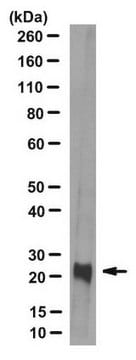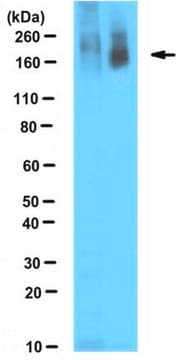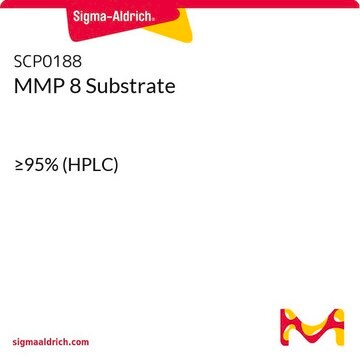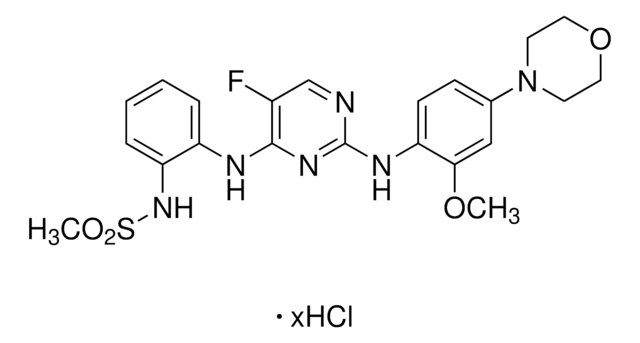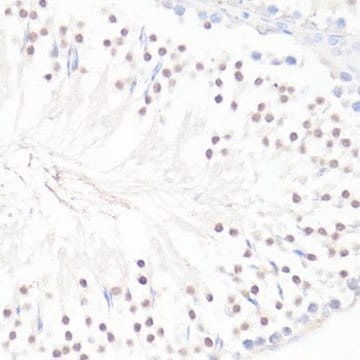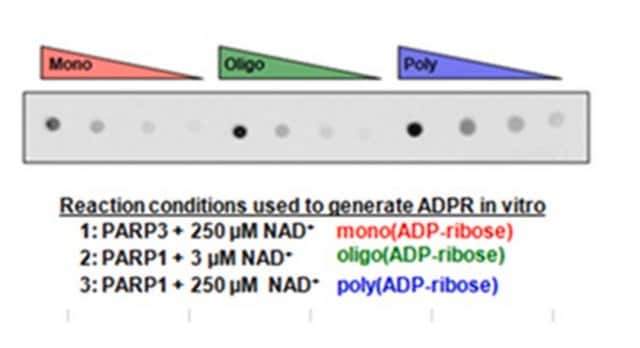ABC217
Anti-GLI1 Antibody
from rabbit, purified by affinity chromatography
Synonym(e):
Zinc finger protein GLI1, Glioma-associated oncogene, Oncogene GLI
About This Item
Empfohlene Produkte
Biologische Quelle
rabbit
Qualitätsniveau
Antikörperform
affinity isolated antibody
Antikörper-Produkttyp
primary antibodies
Klon
polyclonal
Aufgereinigt durch
affinity chromatography
Speziesreaktivität
human, rat
Methode(n)
immunohistochemistry: suitable (paraffin)
western blot: suitable
NCBI-Hinterlegungsnummer
UniProt-Hinterlegungsnummer
Versandbedingung
wet ice
Posttranslationale Modifikation Target
unmodified
Angaben zum Gen
human ... GLI1(2735)
Allgemeine Beschreibung
Immunogen
Anwendung
Apoptose & Krebs
Apoptose - Weiterführende Produkte
Immunohistochemistry Analysis: A 1:500 dilution from a representative lot detected GLI1 in human cerebellum and thalamus tissues.
Immunohistochemistry Analysis: A 1:50 dilution from a representative lot detected GLI1 in rat testis tissue.
Qualität
Western Blotting Analysis: A 1:250 dilution of this antibody detected GLI1 in 10 µg of A549 cell lysate.
Zielbeschreibung
Verlinkung
Physikalische Form
Lagerung und Haltbarkeit
Haftungsausschluss
Sie haben nicht das passende Produkt gefunden?
Probieren Sie unser Produkt-Auswahlhilfe. aus.
Lagerklassenschlüssel
12 - Non Combustible Liquids
WGK
WGK 1
Flammpunkt (°F)
Not applicable
Flammpunkt (°C)
Not applicable
Analysenzertifikate (COA)
Suchen Sie nach Analysenzertifikate (COA), indem Sie die Lot-/Chargennummer des Produkts eingeben. Lot- und Chargennummern sind auf dem Produktetikett hinter den Wörtern ‘Lot’ oder ‘Batch’ (Lot oder Charge) zu finden.
Besitzen Sie dieses Produkt bereits?
In der Dokumentenbibliothek finden Sie die Dokumentation zu den Produkten, die Sie kürzlich erworben haben.
Unser Team von Wissenschaftlern verfügt über Erfahrung in allen Forschungsbereichen einschließlich Life Science, Materialwissenschaften, chemischer Synthese, Chromatographie, Analytik und vielen mehr..
Setzen Sie sich mit dem technischen Dienst in Verbindung.

